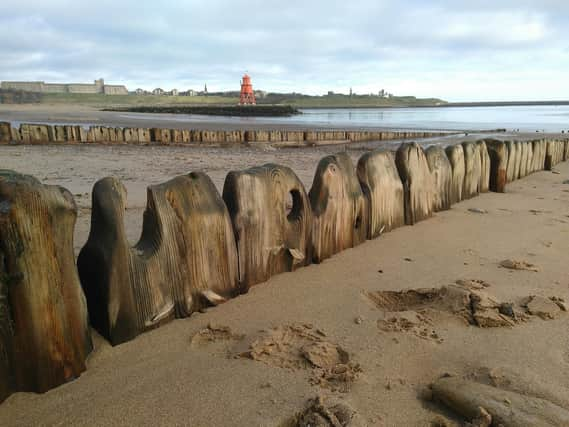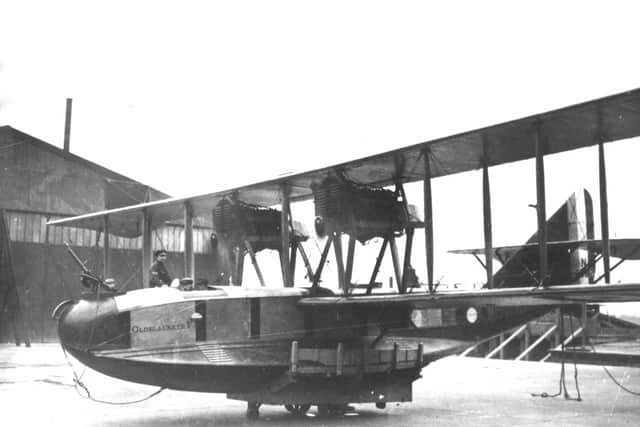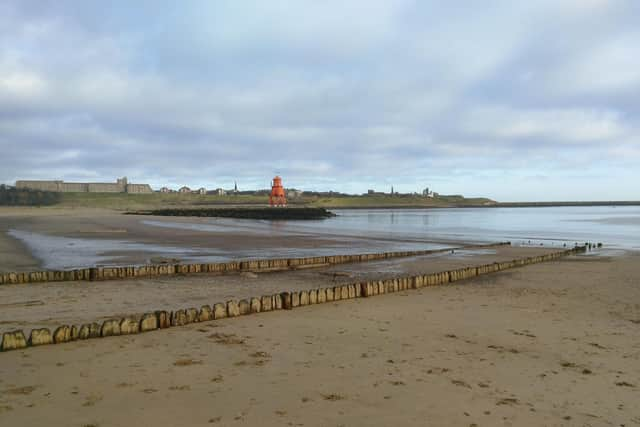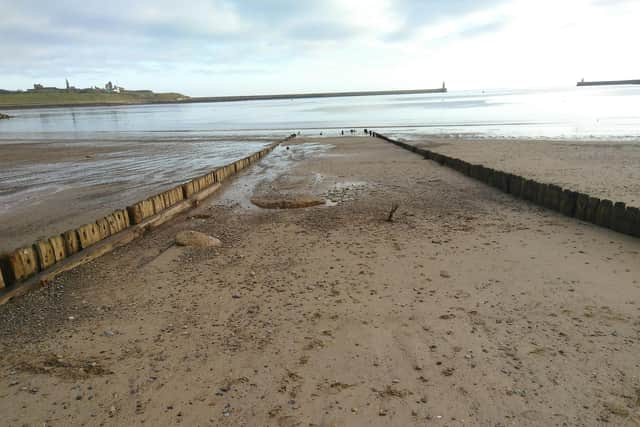Remains of First World War seaplane slipway re-emerge as conditions right at South Shields' Littlehaven Beach


The low tide and clear conditions at Littlehaven Beach in recent days have given people enjoying their daily exercise a great view of the First World War structure which usually lies submerged beneath the sea and sand.
The curious remains are all that’s left of a slipway used by seaplanes during the First World War, when the seafront was home to a Royal Navy Air Service (RNAS) base.
Advertisement
Hide AdAdvertisement
Hide AdToday, in non-covid times at least, the beach is popular place for families to enjoy on a sunny day, and a much-loved spot for dog walkers.


But during the First World War it played an important role in country’s defences against the enemy, as home to the flying boats patrolling the waters looking for enemy ships, U-boats and Zepplins.
And every now and again, when the conditions are right, the remains of the slipway reemerge from the sea and the sand to remind us of the past.
The base was set up in 1916, comprising of the slipway and some aircraft hangers, and was used by Curtis and Felixstowe aircraft. The slipway itself is said to date from 1917.
Advertisement
Hide AdAdvertisement
Hide AdThe North East Aviation Research website, part of the North East Land, Sea and Air Museum in Sunderland, lists the site as having been active from April 1916 until 1919, occupying 21 acres with seaplane sheds measuring 200ft by 100ft.


According to the North East War Memorials Project, there were five seaplane sheds which occupied much of the beach, with most of the sand fenced off leaving only a small strip for visitors to “enjoy”.
The base was dismantled after the war and now the remnants of the slipway are the the only physical reminder of this chapter in the borough’s wartime past.
Today the slipway’s wooden beams have been smoothed and sculpted into curious shapes by the North Sea, and gnarled sections of concrete and rusted, twisted metal can still be seen between them.
Advertisement
Hide AdAdvertisement
Hide Ad:: If you are tempted to visit the beach to see the remains of the slipway, please remember to stick to covid regulations and social-distancing guidelines. And don’t expect to see anything if you visit at high tide!

